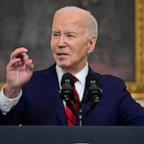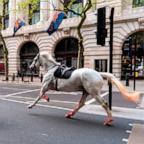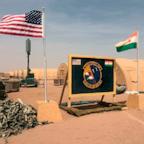Beverley Lumpkin: Halls of Justice
W A S H I N G T O N, Oct. 26 -- It's passed, it's signed; now all terrorists, and even suspected terrorists, had best beware.
First may I say that some unheralded staffer in the House of Representatives deserves credit for coming up with the name of this act. Whereas in the Senate it was rather modestly named The Uniting and Strengthening of America Act ("USA Act"), the final legislation as passed adopted the House name: The Uniting and Strengthening America by Providing Appropriate Tools Required to Intercept and Obstruct Terrorism - or USA Patriot Act.
I've written so much about this legislation in the past several weeks that I promise not to bore you again, but feel I must point out how positively fierce Attorney General John Ashcroft was in his speech Thursday to the mayors about how he plans to implement these new tools.
Moreover, the attorney general announced a new aggressive policy of using literally any offense no matter how minor to pick up and charge suspected terrorists.
In a somewhat odd analogy, he several times invoked Bobby Kennedy's war against organized crime, when mobsters were charged with violations of the Migratory Bird Act, or indicted for lying on a federal home loan application. Do people really remember those long-ago actions, or was he (she cynically asked) invoking Kennedy's name to ward off the civil libertarians?
In a later background briefing, two Justice officials made clear they are prepared to charge people with crimes that would normally fall way off the radar screen, just to get suspected terrorists off the streets.
They pointed out these are real laws, and nobody has the right to violate any of them; it's just that in the normal course of executing prosecutorial discretion, some laws are rarely wielded. If they subsequently should become satisfied that the suspect is not in fact a terrorist, then maybe he can make bond on his penny-ante crime.
As to the new legislation itself, one official in particular was positively exhilarated at the new tools soon to be in his hands. Two provisions that he cited as "most immediately useful" were the expanded powers to access routing information on e-mails; and information-sharing between criminal investigators and the intelligence community.
He promised that as to these two provisions "we could literally deploy within minutes of the signing of the bill."
Intriguingly, as to the info-sharing, he added that "there are files on the intelligence side that are ready to go and be looked at on the criminal side." Reporters clamored in vain for answers as to what kind of intelligence files, and how many, and how long they had been piling up.




